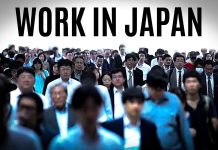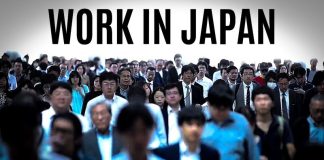The outsized impact of the COVID-19 pandemic on employment in the tourism sector in Asia and the Pacific has been confirmed by new research from the International Labour Organization (ILO). Evidence from five countries – Brunei, Mongolia, Philippines, Thailand and Viet Nam – reveals job losses in tourism-related sectors in 2020 were four times greater than in non-tourism sectors. Nearly one-third of total job losses were linked to the tourism sector with an estimated 1.6 million tourism-related jobs lost in these five countries alone. With many additional jobs indirectly linked to the sector, the real estimate of tourism-related jobs suffering the effects of the COVID-19 pandemic in the region is likely to be much higher.
“The impact of the COVID-19 pandemic on the tourism sector in Asia and the Pacific has been nothing short of catastrophic. Even with countries in the region focusing heavily on vaccinations and designing strategies to slowly re-open borders, jobs and working hours in the tourism-related sector are likely to remain below their pre-crisis numbers in Asia–Pacific countries into next year,” said Chihoko Asada-Miyakawa, ILO Assistant Director General and Regional Director for Asia and the Pacific.
Where decreases in tourism-related jobs were seemingly small, a deterioration in the quality of available jobs was still evident. Women workers appear to have been particularly hit with an increased concentration of women carrying out food and beverage serving activities, the lowest-paid jobs in the sector. Working-hour losses in tourism are well above those estimated for other sectors with the magnitude of reduced hours from two to seven times greater than for non-tourism-related workers. In 2020, working hour losses in the sector ranged from 4 per cent in Viet Nam to 38 per cent in the Philippines. In addition, as formal jobs in tourism declined, workers have increasingly moved into the informal sector.
Even as borders re-open, international tourist arrivals are predicted to be slow in the near-term. In view of this, governments in tourism-rich countries are likely to seek broader economic diversification with the ultimate aim to create new employment opportunities in non-tourism sectors. “With tourism revenues at a standstill and with tourism-related jobs among those most affected by the crisis, the pandemic has invited a ‘re-think’ of medium- and long-term tourism strategies. The crisis thus brings with it the opportunity to align the tourism sector towards a more resilient, human-centred future,” said Sara Elder, ILO Senior Economist and lead author of the study. “Recovery will take time and affected workers and enterprises in the tourism sector will continue to require assistance to replace lost incomes and preserve assets. Governments should continue to implement support measures, while striving to vaccinate all residents, migrant workers included,” she added.
A heavy impact on enterprises and workers in tourism at country level
- In the Philippines, employment losses and decreases in average working hours in 2020 were among the largest. Employment in the sector contracted by 28 per cent (compared to an 8 per cent loss in non-tourism related sectors) and average hours worked by 38 per cent. Workers in the tourism-related sector working zero hours per week rose two thousand-fold (affecting 775,000 workers).
- In Viet Nam, the dire consequences of the crisis on the tourism sector were reflected primarily in decreasing wages and increased informality. Average tourism wages fell by nearly 18 per cent, with the decline for women employees even higher at almost 23 per cent. While the number of informal employees in tourism increased by 3 per cent in 2020, the number of formal employees decreased by 11 per cent.
- The impact of the crisis on tourism employment in Thailand was more muted, yet contractions in wages and working hours were stark and jobs in the sector contracted while jobs in non-tourism related sectors experienced a slight gain. Average wages in the tourism sector decreased by 9.5 per cent overall as tourism workers moved into lower-paid jobs like food and beverage serving activities. Average hours worked declined by 10 per cent. In the first quarter 2021, employment was below pre-crisis numbers in all tourism-related sub-sectors other than food and beverage serving activities.
- The tourism sector in Brunei Darussalam was hard hit in terms of both lower employment and fewer average hours worked, which contracted by more than 40 per cent and nearly 21 per cent respectively. It was also the country that saw the largest difference between employment losses in tourism and non-tourism related sectors.
- Likewise, in Mongolia, tourism employment and average working hours suffered considerably from the pandemic and contracted correspondingly by almost 17 per cent and more than 13 per cent. The impact on employment among male tourism workers was particularly sizeable, falling by around 29 per cent.




















